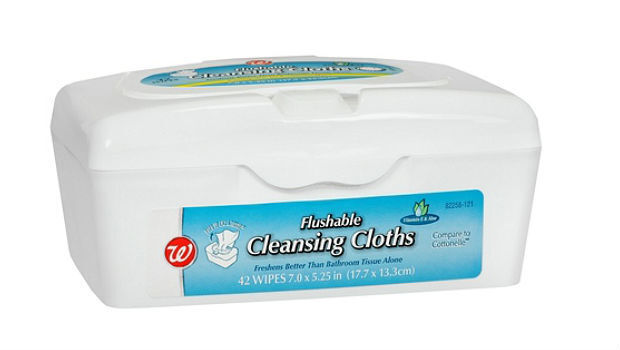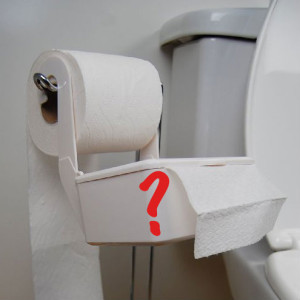To Flush or Not to Flush: Wipes and Your Septic System

Once upon a time there were baby wipes….so convenient and soft for baby’s bottom and every mom’s dream come true! An incredible invention – a portable and disposable washcloth! Disposable? Of course! Just flush! Everyone else got on the ‘wipe wagon. Today we have hand wipes, pet wipes, deodorant wipes, floor wipes, wound wipes, facial wipes. We’ve become the wiped out wonders of the western world! How wonderful!

Except for one minor problem….
Most wipes aren’t flushable.
You know the old adage: If it sounds too good to be true, it probably is.
The use of wipes across the country has increased dramatically over the last decade. But popular and convenient can easily become problematic and costly for your septic system. You could be spending thousand of dollars for that convenience if you’re not careful.
FLUSHABLE WIPES VS. NON-FLUSHABLE WIPES
Kyra Dorsey, chair of the Association of the Nonwoven Fabrics Industry’s Flushability Task Force (Yes! This is a real agency) states, “A study of municipal waste water systems shows that over 90% of the material found in clogs consists of articles that were never intended to be flushed.” Wow!
On November 18, 2013, a report was published which states, “In an effort to educate consumers about which disposable wipe products are truly flushable, Wisconsin-based IPS Testing (Integrated Paper Services, Inc.) has become one of just two independent labs in the U.S. and North America to administer industry-initiated testing standards on behalf of suppliers and manufacturers.” A seven step test is administered, and if a product fails even one of these, it will be labeled as non-flushable. With developing standards in place, the ever-so-popular flushable product industry will become more pressured into providing products that adequately break down through the flushing process, saving the environment and saving you excessive expenses in repairs!
Wipes have the potential to plug the sewer line between the house and tank and build up at the inlet of the septic tank and cause the septic to back up into the house. An accumulation of wipes in a septic tank will reduce its ability to remove solids from the water discharging to your leach area. If you have an aeration system, the wipes can and will build up on the air distribution equipment and cause failures. The antibacterial agents in the wipes can also harm the helpful bacteria needed in your septic tank.
The best advice?
“Clogging your septic is a serious issue, so PLEASE flush ONLY toilet tissue!”
